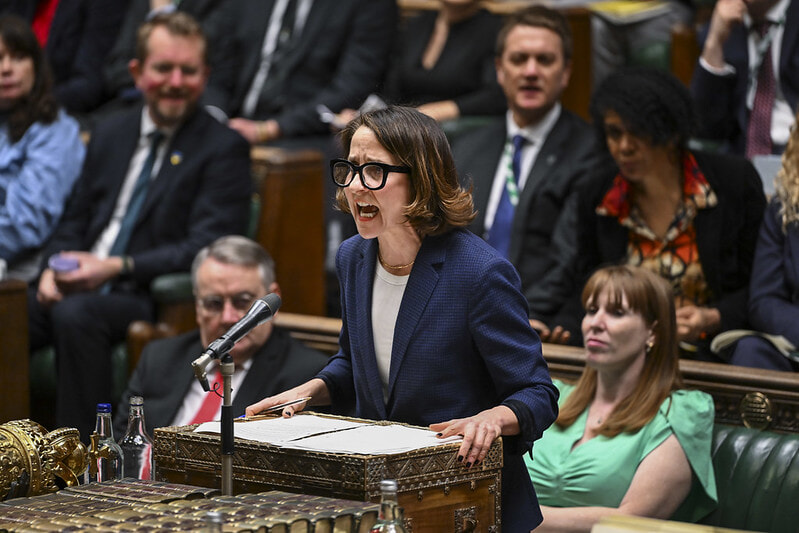The UK Labour Government’s welfare U-turn is set to cost £2.5bn by the end of the decade, Liz Kendall told MPs on Monday.
The work and pensions secretary laid out the Government’s welfare reform concessions to Labour rebels less than 24 hours before a crucial vote.
The costs and savings of the Government’s revised welfare package will be confirmed by the Office for Budget Responsibility at the budget in the autumn.
“Reform is never easy, but it is essential. There is no route to equality or social justice based on greater benefits spending alone,” Kendall told MPs on Monday.
“Our plans are rooted in fairness for those who need support and for taxpayers. They’re about ensuring the welfare state survives so there is always a safety net for those who need it, and that lasts for generations to come.”
Her statement to MPs confirmed the UK Government’s concessions to rebels that were announced last week, which included protecting people who claim personal independence payments (PIP) from new eligibility criteria.
It also suggested the revised reforms would save less than half the £4.8bn the Government had expected from its initial proposals.
The welfare reforms originally wanted to cut Universal Credit health top-ups for new claims from April 2026.
The reforms also vowed to review Personal Independence Payment (PIP) assessments and “focus PIP on those with higher needs”.
The cuts to Universal Credit would have directly impacted benefit claimants in Scotland, while the other changes would have impacted the amount of money coming to Social Security Scotland for devolved benefits.
However, 126 Labour backbenchers signed their names to an amendment to halt the welfare reform legislation in its tracks last week.
Among the rebels were nine Scottish Labour MPs.
The rebels argued that the plans were rushed and would push vulnerable disabled people into poverty.
After originally doubling down on the reforms, Starmer’s government was forced to back-track ahead of the crucial vote on Tuesday.
Under the concessions, Kendall said PIP claimants would continue to receive the benefits they currently get, as will recipients of the health element of universal credit.
In other words, the planned benefit cuts will only hit future claimants.
Campaigners have accused the latest proposals of creating a two-tier benefits system, but on Monday, Kendall argued that the UK benefits system “often protects existing claimants from new rates or rules because lives have been built around that support”, making it hard for people to adjust.
“We believe protecting existing claimants while beginning to focus PIP on those with higher needs for new claimants going forward strikes the right and fair balance,” Kendall said.
She also vowed that the “voices of disabled people will be heard at the heart of Government plans” during the wider review of PIP.
However, shadow secretary of state for work and pensions, Helen Whately was not impressed.
“This is a Government in chaos,” she said.
She slammed the UK Labour Government’s open rebellion, as well as its “unfunded U-turns costing billions”.
Whately said Kendall’s welfare plans were “not worth the paper they are written on”.
“What we now have before us is a rushed and chaotic compromise. It is not reform in any sense of the word,” Whately said.
“It achieves no meaningful change of a system we all know is broken.”
The reforms will be put to a vote on Tuesday around noon. The House of Commons proceedings will be broadcast from the chamber.
Follow STV News on WhatsApp
Scan the QR code on your mobile device for all the latest news from around the country




























